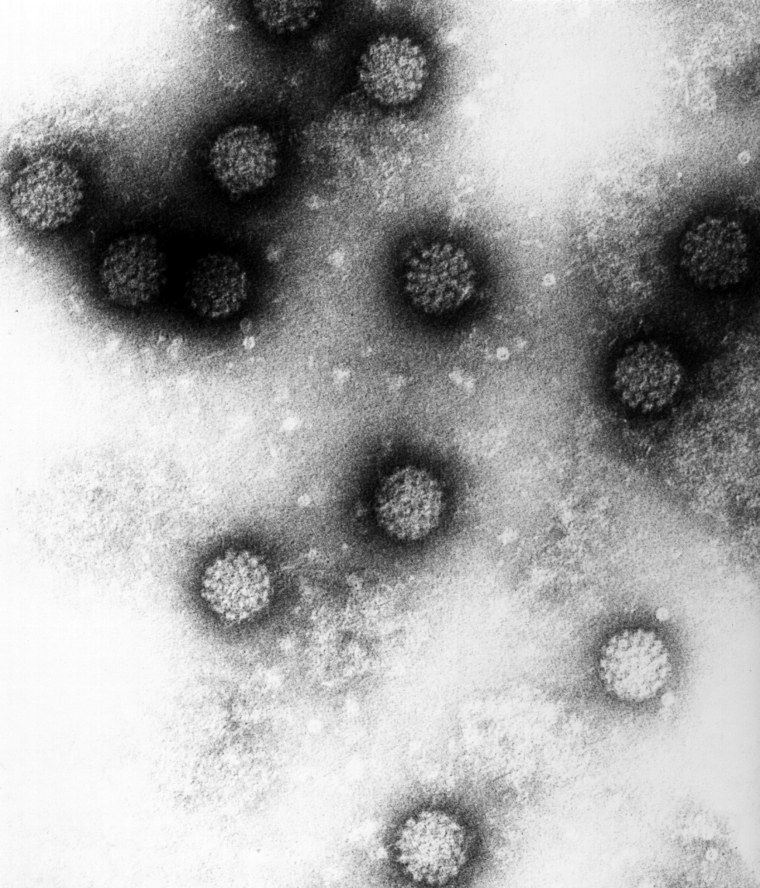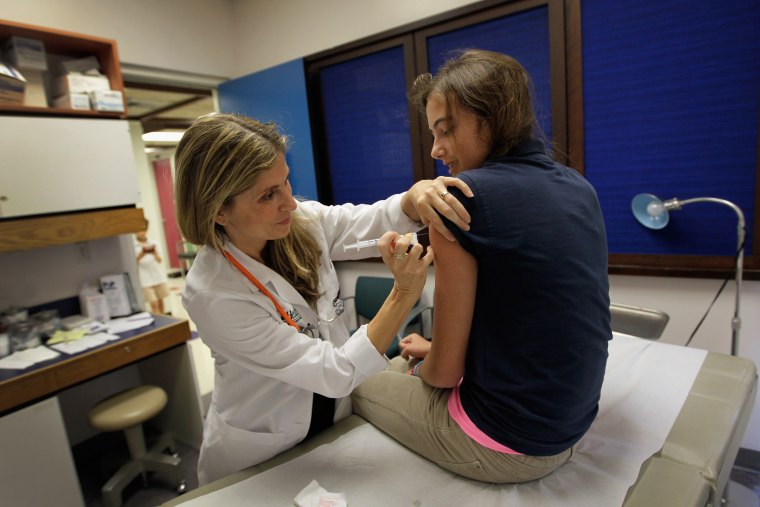More than two-thirds of healthy Americans are teeming with HPV, a new survey finds.
But don’t worry — most are benign types of virus, the survey indicates. In fact, having harmless wart virus infections may help control the types that cause warts and cancer, the researchers told a meeting of the American Society for Microbiology.
There are 109 known different types of human papillomaviruses (HPV). They cause warts and other lesions and two in particular, HPV 16 and HPV 18, cause cancers of the cervix, anus and penis, as well as the mouth and throat. Types 6 and 11 can cause lesions and genital warts, and there are vaccines that protect against either two or four of these types that are now recommended for all children.

Dr. Zhiheng Pei and colleagues at New York University’s Langone Medical Center surveyed tissue samples from 103 men and women, looking at samples from the mouth, skin, genitals and guts. They ran a DNA analysis, looking for HPV DNA.
They found that 69 percent of volunteers were infected with one or more of 109 strains of human papillomavirus (HPV). Only four of them had either HPV 16 or 18.
Most of the infections — 61 percent — were on the skin. HPV was found in 41 percent of samples taken from the vagina, 30 percent from the mouth and 17 percent of the gut samples.
“The HPV 'community' in healthy people is surprisingly more vast and complex than previously thought, and much further monitoring and research is needed to determine how the various non-cancer-causing HPV genotypes interact with the cancer-causing strains, such as genotypes 16 and 18, and what causes these strains to trigger cancer,” Yingfei Ma, who worked on the study, said in a statement.
Such a community is called a microbiome, and scientists are learning that the populations of bacteria, yeast and viruses living in and on our bodies help in digestion, help control disease-causing bacteria, and may affect obesity, cancer and even mental health.
"Our study offers initial and broad evidence of a seemingly 'normal' HPV viral biome in people that does not necessarily cause disease and that could very well mimic the highly varied bacterial environment in the body, or microbiome, which is key to maintaining good health,” Pei added.
The study found that 40 percent of the HPV types live only on the skin.
The Centers for Disease Control and Prevention says 14 million people become newly infected each year with the cancer-causing forms of HPV. CDC says most sexually active men and women will get at least one type of HPV at some point in their lives, but the infections usually clear up without causing harm.
